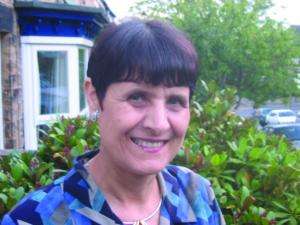Social workers need to be disaster-trained

Professional Social Work magazine, 17 November, 2020
As a leading social work academic, professor Lena Dominelli has written extensively about feminism, anti-racism, globalisation, climate change and social work in disasters.
Today it’s increasingly the latter that dominates her thoughts: more specifically the skills social workers need to work in such contexts.
Apart from the global calamity of the current pandemic, there have been many other examples of situations that have exposed a need for these skills. Some of them have been man-made, such as the Grenfell Tower fire and terrorist attacks in Manchester and London in the UK.
Some have been natural, like floods and other extreme weather (though these too are linked to the actions of humans).
Just this month, in the wake of terrorist attacks in Vienna, Nice and Paris, the Home Secretary raised the UK’s threat level to ‘severe’ meaning an act of terrorism on UK soil is “highly likely”.
Dominelli’s strong sense is that while social workers may be trained to deal with crisis in the lives of individuals and families, they aren’t so well prepared to deal with bigger disasters, whether man-made or natural, that impact on whole communities.
It’s why this week she is launching two five-week continuing professional development programmes at Stirling University with a unique MSc in disaster intervention and humanitarian aid to follow in February.
“The reason I got into this here rather than overseas is because of Grenfell,” she says. “I went there and talking to the social workers who worked in the aftermath of the fire highlighted the lack of preparation for me.
“Social workers were just thrown in there and told to get on with it.”
This, insists, Dominelli, is not how it should be in a world likely to be increasingly impacted by disasters.
“Working in a disaster, whether it is a health pandemic, flooding, climate change and extreme weather events, horrendous fires like the one at Grenfell, and terrorism requires specific knowledge,” says Lena.
“This includes understanding social workers’ roles in emergency response teams and the legislation that authorises their involvement.
“We need to train our workers because it is morally and ethically wrong for the government to assume just because social workers have basic training they can deal with everything society throws at them.”
The courses Dominelli is pioneering at Stirling are an attempt to plug this gap. In reality, she believes all qualifying programmes should have at least one module focused on disaster interventions.
“I get really upset because the government has narrowed the focus of social work so much that people are taught primarily about child protection, safeguarding and managing packages of care.
“When I trained in 1980 we were doing counselling, bereavement work and community work. All of these provide knowledge and skills that are relevant in disastersthat we need to know about.”
After the Grenfell fire tragedy in south-west London, PSW highlighted calls from a social worker volunteer on the ground for a network of trained social workers to respond to future emergencies.
Dominelli agrees this is needed, plus post-qualifying training for all practitioners and the creation of a PhD level course in the UK to spearhead good practice in disaster social work.
“We are going to be seeing more and more floods and droughts in this country. We will see more migration of people as well as a result of climate change. The UN predicts anywhere between 250 million and a billion people will be affected and they will all be going to the north.”
As a climate change activist, Dominelli is most concerned about the impact of global warming on the world, a threat that will continue long after that posed by Covid-19 has faded.
“If the permafrost melts it will release not just Co2 but methane which is 25 times worse for the atmosphere. That means the temperature is really going to rise.
“I have a lot of time for Greta [Thunberg], she is just saying what the scientists have said ever since I was involved in this – and we are still ignoring it.”
The qualifying criteria for the CPD courses at Stirling is that candidates need to have lived, worked or survived in a disaster area. As Dominelli points out, with Covid-19 this now applies to virtually everyone.
“We look at the disaster cycle and what happens to people as they go through the disaster.
Covid is a health disaster. What do social workers do? What is their role? What can they do, what can’t they do? How much other science do they need to understand?
“The aim of both the CPD courses and the MSc is to help people understand disasters so they know how to intervene in mitigating the risks and the hazards and use theory to inform practice.”
As social work-led courses, they are expected to attract mainly social workers but they are open to all professionals involved in relevant fields. Dominelli believes such inter-disciplinary will allow professionals to learn from each other and stimulate new thinking around resilience in emergencies.
The first CPD course covering the social dimensions of disasters starts today, 17 of November and runs for five weeks with weekly four-hour workshops.
The second, disaster interventions from green social work perspectives, runs for five weeks from 19 November. Register at here.
The MSc begins in February. For more information or to register click here or send an email with your queries to graduate.admissions@stir.ac.uk
